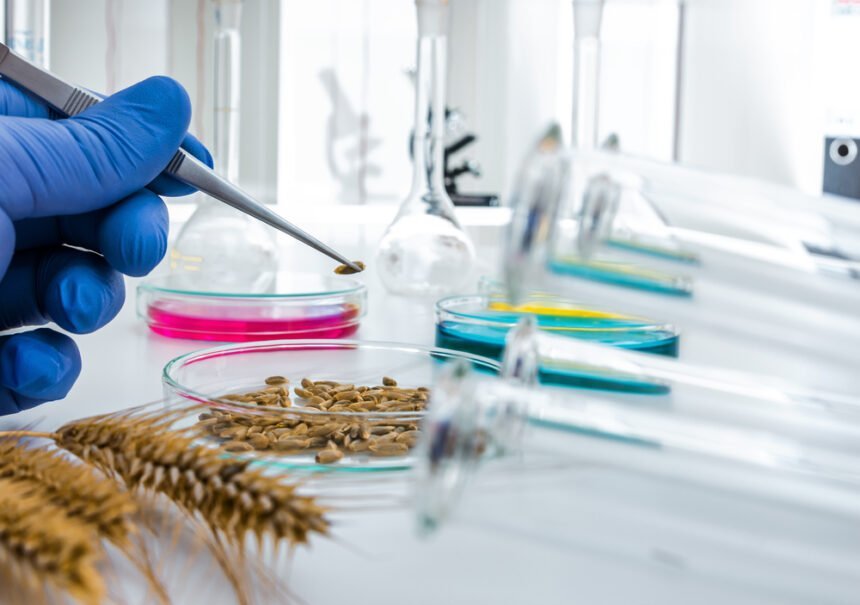Over the decades, food biotechnology has advanced tremendously. New ways of creating products that are more resistant and that look and taste better keep being discovered. The facts are clear, and they show that genetically modified foods are everywhere nowadays. But do you know the truth about them? Let’s find out.
About GMOs
Genetically modified organisms, or GMOs for short, are plants and animals whose DNA has been altered through means that are distinct from natural reproduction methods. This implies transferring certain traits under the form of genes and genetic code from a source organism to a target one.
Through this process, various plants or animals develop unique characteristics that are unachievable at an organic level, such as enhanced nutritional values or pest repellant properties. Such foods are also a lot more aesthetically pleasing and spoil over longer periods of time, which has led many to debate on their health status.
It is worth noting at this point that genetically modified animals are not generally available for consumption. However, much of the food they are fed has been altered in one way or another so that it accelerates growth, promotes milk production and so on. Plenty of ethical conundrums have been born because of this.
Controversies
It’s no secret that people nowadays have become more and more interested in healthy living. In fact, most of the meal plans that are trendy nowadays emphasize the importance of organic, minimally processed foods, such as the Cruise Control diet, the GOLO diet, the Paleo diet or even the ketogenic diet. And the examples don’t stop here.
These come as a response to the ever-increasing tendency to process foods that shouldn’t be tampered with in the first place, such as white bread or tomato sauce, which have a ridiculously high added sugar content. And that’s just one example out of many, many more. For this reason, GMOs have become quite the hot conversation topic.
People from all over the world are opposed to the idea of consuming genetically modified crops, in spite of science’s best efforts to prove that they aren’t unsafe at all. A strong anti-GMO sentiment has pervaded the nations of our world, and it all stems from a deep psychological fear that DNA is immutable, and thus altering it is dangerous.
However, that couldn’t be farther from the truth. While people have gone as far as to suspect global governments of conspiring against the human population and injecting poison in the food to kill us off one by one, transferring genes from one organism to the other is perfectly safe. In many ways, it enhances what we eat in a positive way.
The Reality
In reality, there are several studies which demonstrate that the discussion is a lot more nuanced. One such review published in volume 5 of Food Science and Human Wellness emphasizes that there are plenty of immediate benefits to the practice, and they pertain to both the overall economy and our personal health.
From an agronomic point of view, GM crops have reduced the need for creating arable land, which would have been damaging to the ecosystem. Between 1996 and 2016, biotechnology produced enough sustenance for our planet, cutting the need for creating parcels by 11% in the United States and as much as 32% on the entire European continent.
And that’s not all. Genetically modified crops and the foods that came from them brought in 116 billion dollars in profit to the industry since 1996 onward. This came in equal parts from the increased production levels that new biotechnologies brought and the reduced costs that came along with it.
Last, but certainly not least, the manipulation of nutrient levels in the foods that are consumed around the world is also beneficial, although this is what many people fear the most. Most of the fruits and vegetables subjected to the process are enriched with additional vitamin and minerals, which has positive results as far as the overall health of the population is concerned.
Naturally, there are also disadvantages to be considered, but they aren’t to be confused with myths. Antibiotics resistance is one of them, and so is a potential risk of allergy increase among the susceptible population. Nevertheless, these are strictly hypothetical for the most part. The research so far has demonstrated that hazards are minimal in the case of GMOs.
Conclusion
Although people tend to feel uneasy when they hear that their food has been genetically modified, there is plenty of scientific evidence to demonstrate that shouldn’t be the case. The fear behind is understandable, but there is no reason to hold on to it. While it is true that the disadvantages do indeed exist, they aren’t enough to back up the existence of a real problem.

